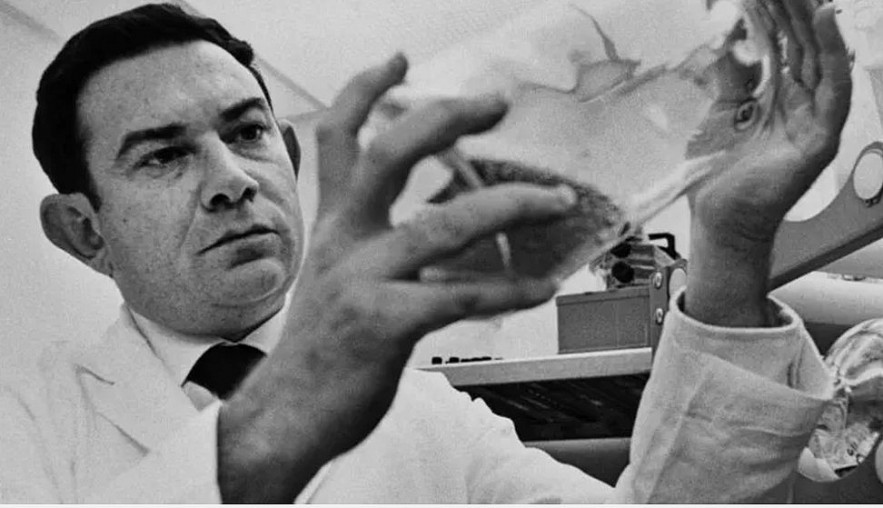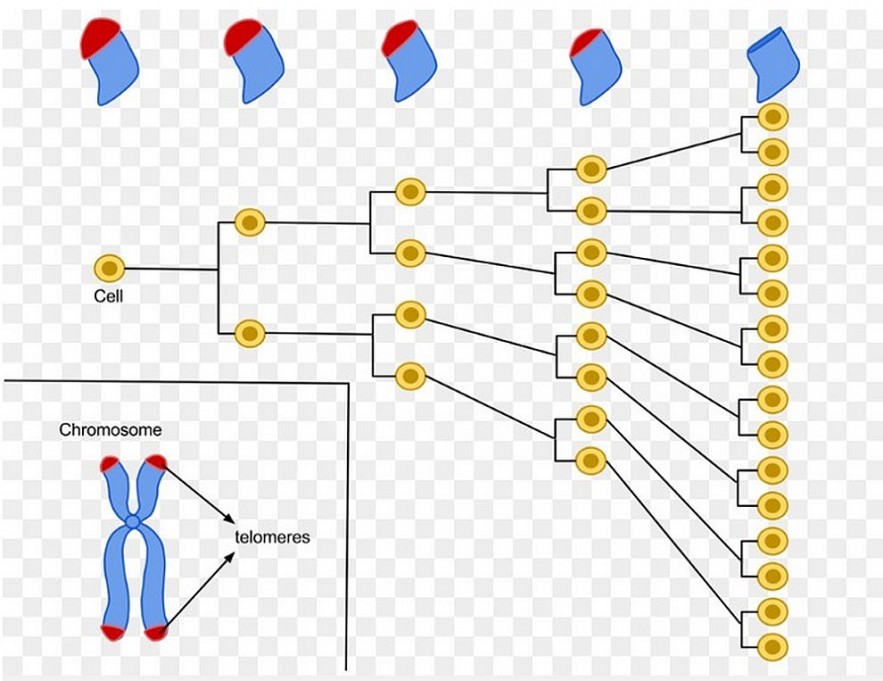What is the Hayflick Limit and Why Humans Never Live Beyond the Age of 125
 |
| Why Can Humans Only Live Up to 125 Year-Old |
We are human, we will grow old. However, our cells are not like that. Humanity has turned to different religions, cultures and historical sources to understand more about why we age. The science at the time still didn't really understand it, so it was impossible to give a reason behind the natural aging process.
Until 1961, a biomedical expert - Leonard Hayflick made a discovery that changed the world of medicine forever.
Who is Leonard Hayflick?
 |
| Leonard Hayflick working in the lab |
Leonard Hayflick was born in Philadelphia, Pennsylvania on May 20, 1928. His parents, Edna Hayflick and Nathan Hayflick both worked in the medical field, which is a factor in Hayflick's passion for science. science and biomedicine. What really motivated him to become a scientist in the medical field was that on his nineth birthday, Hayflick's uncle brought him a chemistry kit as a birthday present.
In his teens, Hayflick's parents built him a small biology and chemistry lab in the basement of the house. When he started school at John Bartram High School in Philadelphia, Hayflick was so knowledgeable about chemistry that he was able to correct his chemistry teacher.
Hayflick is said to have started attending the University of Pennsylvania in 1946, but he postponed his studies to fulfill his military service. On his return in 1948, he returned to continue his education. After graduating in 1951, he was hired as a research assistant in bacteriology. Although the job was good, he showed a liking for the environment inside the University of Pennsylvania, which is why he went back there to study and get his master's degree. Immediately upon graduation, he won the school's doctoral scholarship in the program of medical microbiology and chemistry. He received his doctorate in 1956.
An accidental discovery!
At the Wistar Institute in 1958, Hayflick began to study whether viruses could cause cancer in humans. That's why he decided to extract viruses that are thought to cause cancer and place them in healthy human cells to find evidence. To make the study unbiased, he had to use more samples, which meant growing more cells. Working in cell cultures, Hayflick noticed something was wrong, a group of older cells stopped dividing and he didn't understand why that was happening.
Cells don't die as they continue to metabolize, but they don't divide anymore. After looking at other cultured cells, he found that most of them would stop dividing by about 50 doublings of the cell population.
 |
| Illustration of mitotic activity, with telomeres getting shorter and shorter |
According to previous understandings, all of our cells are constantly dividing, which is a process that cannot be stopped. With this test, however, Hayflick found that after each division, the telomeres that can be found at the ends of each chromosome get shorter and shorter, and when the limit is reached, the cells stop dividing. divide.
Until that time, scientists believed that the natural aging process was related to the origin of life, which to this day we have not been able to understand or comprehend. When he discovered this about cells, Hayflick stopped studying cancer cells and focused on what is now known as gerontology (the study of the aging process).
During 2 years of research, he discovered that cellular aging is related to the age of the human body and that's why we only live around 125 years. His paper was published in 1961 under the title "Serial Culture of Human Diploid Cell Strains". In another study done, he looked at cells collected from different parts of the body as well as compared cells collected from adults and fetuses.
The results show that the cells will divide about 40 to a maximum of 60 times before stopping. Once they stop, they degenerate and die. The same applies to humans as they reach advanced age, and this is the cause of natural death. The body degenerates and therefore over time we die. This theory is described in great detail in his paper, where he mentions that the lengths of telomeres presented in different cells can take more or less time to shorten to the cell division breaking point. cell.
The science behind the discovery
Some cells only divide 40 times before they stop, because due to the length of the telomeres, this also shows that each DNA will have its own unique properties. This means that the reason why some people age faster than others is all down to genes. When compared with a person's age, when a cell divides to 60 times, that means that person is at the age of 125 and therefore, if they have longer telomeres in their genes, they will have a longer theoretical life.
A cell can complete mitosis, or cell replication and division, only forty to sixty times before undergoing apoptosis and subsequent death. Since our bodies are made up only of cells, this would explain why death from old age is such an obvious thing. In addition, the paper shows that with each cell duplication and division, the cell itself becomes more fragile, weaker, and less efficient at mitosis.
Above we can see the research done by Heyflick in 1961 where he tried to see how many times a cell can duplicate and divide during cell culture. When the 50th mitosis is complete, the cell will initiate apoptosis there and gradually die.
This is a perfect representation of the human aging process. Over time as we age, our body weakens, so do all the senses such as sight, hearing and most importantly, the wound healing process is slowed down because cells take longer. more time to regenerate. Over time, things will become slower and more difficult.
New Research: Humans Could Live up to 150 YearsThe researchers conclude in findings published in May 2021 in Nature Communications: Human body’s capacity to restore equilibrium to its myriad structural and metabolic systems after disruptions still fades with time. And even if we make it through life with few stressors, this incremental decline sets the maximum life span for humans at somewhere between 120 and 150 years. In the end, if the obvious hazards do not take our lives, this fundamental loss of resilience will do so. “They are asking the question of ‘What’s the longest life that could be lived by a human complex system if everything else went really well, and it’s in a stressor-free environment?’” says Heather Whitson, director of the Duke University Center for the Study of Aging and Human Development, who was not involved in the paper. The researchers also found that with age, the body’s response to insults could increasingly range far from a stable normal, requiring more time for recovery. Whitson says that this result makes sense: A healthy young person can produce a rapid physiological response to adjust to fluctuations and restore a personal norm. |
 Ranking the Longevity of 12 Zodiac Signs - Who is Forever Young? Ranking the Longevity of 12 Zodiac Signs - Who is Forever Young? When looking at the ranking of 12 zodiac signs of longevity, you will realize that no one is naturally beautiful, it is the result of ... |
 Top 10 Best Magic Foods That Can Help You Live Longer Top 10 Best Magic Foods That Can Help You Live Longer Eating and diets can play important roles in your healthy life and longevity. |























